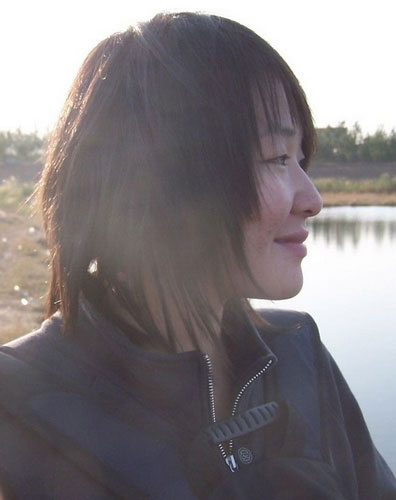Chinese film gets a Tiger in Rotterdam
- By Pang Li
 0 Comment(s)
0 Comment(s) Print
Print E-mail China.org.cn, February 6, 2012
E-mail China.org.cn, February 6, 2012
|
|
|
Chinese writer-director Huang Ji [Photo courtesy of IFFR] |
Child molestation and teen pregnancy are topics rarely discussed in Chinese cinema. But Chinese writer-director Huang Ji said Thursday that she wanted her new picture to realistically reflect these real-life situations.
Huang Ji's feature debut "Egg and Stone" is the only film from the Chinese mainland to compete for the Tiger Awards at this year's International Film Festival in Rotterdam, Netherlands. It has won the Hivos Tiger Award, the festival's organizers announced on Feb. 3.
"Egg and Stone" tells the suffering and struggle of a teenage girl who gets pregnant after being sexually abused by a relative.
Huang said that the story actually was partially based on her own experience, recalling that she was molested by a distant relative when she lived in an uncle's home at the age of eight. When preparing for her first feature, she came up with the idea of using her childhood experience as source material. In research for the film, she said that she studied a lot of child molestation cases in China on the Internet and also recounted similar stories from others who lived in her hometown. Realizing that how widespread and serious the issue is, she decided to make a film about it to raise public awareness, she added.
None of the actors featured in the film are professionals − Huang found leading actress Yao Honggui in a middle school in Hunan Province. Explaining why she cast non-experienced actors, the director said: "Their acting is more genuine. Their moves and words are their own and leave no traces of acting."
"I want to tell a solid, complicated and delicate story through the actor's unaffected performance," she said. In this way, she noted, feelings and emotions expressed in the film can be more complicated and delicate than that in real life.
Based in Hunan Province, all the characters in the film speak the local dialect. Without subtitles, the dialogue is hardly understandable. Huang admitted that this could be a big barrier for a wide release in China as dialects are not generally allowed in films released in the mainland. The director said that she would not dub her film in Mandarin or make any other changes for the purpose of a wide release. In fact, she said she does not expect her film to be released in China at all.
Asked how she plans to cover the production cost without a wide release, she said that she would find a foreign distributor and submit her work to more film festivals.







Go to Forum >>0 Comment(s)